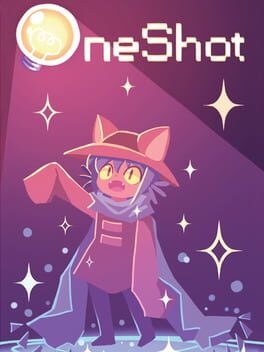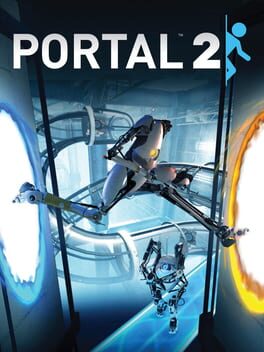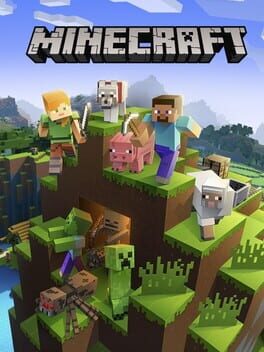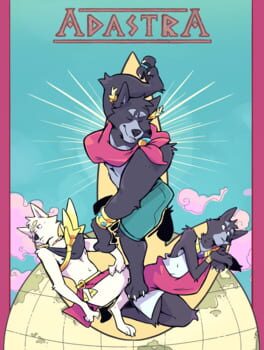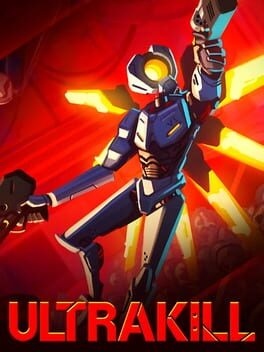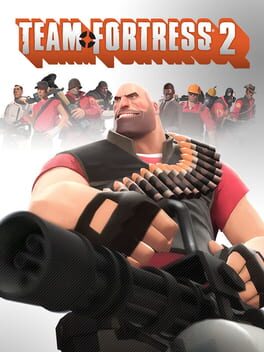Ebu
2016
OneShot is a wonderful little RPG where you guide a child character through a world filled with a quirky ensemble of characters, with some neat puzzles, fourth-wall breaks, and a bullet-hell battle syst--... wait, scratch that last one.
Yes, comparisons to Undertale are inevitable; both have a similar writing style and were released close to each other. Undertale's unfathomable popularity leaves OneShot feeling a bit neglected, but it has strong points of its own. Niko's personality is well-written, managing to keep a curious precociousness without tipping too far into immaturity. The game's soundtrack is a soothing, minimalistic, almost lo-fi swirl, pairing well with the somber world.
Without spoiling anything, some of the game's unique puzzle mechanics are a bit obtuse, and I needed a guide to get through some of them. Nothing that ruined the game experience, but some did feel more like gimmicks put in because it was possible to implement, rather than ones that were satisfying to solve. (Though I will admit I'm not the best at parsing everything that's being telegraphed at me.)
The story is quite lighthearted, even as it can dip into heavier tones. I personally think the Solstice expansion, while definitely expanding on the world in a positive way, undoes part of what makes the endings of the original form of the game work. I don't feel overall soured by the change.
Overall, I think its strengths still shine (no pun intended) through its weaknesses and can still recommend this charming little game.
Yes, comparisons to Undertale are inevitable; both have a similar writing style and were released close to each other. Undertale's unfathomable popularity leaves OneShot feeling a bit neglected, but it has strong points of its own. Niko's personality is well-written, managing to keep a curious precociousness without tipping too far into immaturity. The game's soundtrack is a soothing, minimalistic, almost lo-fi swirl, pairing well with the somber world.
Without spoiling anything, some of the game's unique puzzle mechanics are a bit obtuse, and I needed a guide to get through some of them. Nothing that ruined the game experience, but some did feel more like gimmicks put in because it was possible to implement, rather than ones that were satisfying to solve. (Though I will admit I'm not the best at parsing everything that's being telegraphed at me.)
The story is quite lighthearted, even as it can dip into heavier tones. I personally think the Solstice expansion, while definitely expanding on the world in a positive way, undoes part of what makes the endings of the original form of the game work. I don't feel overall soured by the change.
Overall, I think its strengths still shine (no pun intended) through its weaknesses and can still recommend this charming little game.
2011
A wonderfully crafted technically-a-first-person-shooter puzzle-platformer, with decent comedic chops and lots of interesting mechanics expanded upon by the community.
Note that I played Portal 2 first and Portal after. The tone is a lot lighter in the newer game, further detaching itself from Half-Life. Some mechanics have been refined, the slow-moving energy ball now a laser, and portal shots traveling instantly to their destination. New mechanics, such as the speed, bounce, and portal paint, are introduced and iterated upon over the course of the game, but like the original, it does not overstay its welcome. (It's still about twice as long as the very short Portal.) Somehow, I have yet to actually play through the co-op mode, which by all reports seems to be another 8 hours.
Also like the original, Portal 2 is quite easy. Those looking for challenging puzzles may find more interest in community-made mods such as Portal Stories: Mel or Portal Reloaded, or community maps published on the workshop ranging from base-game easy to nightmarishly-difficult. A quick note on community maps: I highly recommend completely ignoring steam workshop votes and built-in discovery tools -- there is a lot of poorly-designed yet highly-popular maps there. Look for recommendations from humans, not algorithms. RedSilencer's Introduction to the Workshop collection is an excellent first choice on post-game community puzzles.
Portal 2 was the first game I played on my Steam account when I was 11 or so. It's not a long game, but I sunk many hours into it, playing through multiple times over the years and even longer just noclipping through the maps to see everything and listening to the developer commentary, always a extra treat in Valve games for budding or wannabe game developers. (Unfortunately: *gestures broadly at the gaming industry*)
Note that I played Portal 2 first and Portal after. The tone is a lot lighter in the newer game, further detaching itself from Half-Life. Some mechanics have been refined, the slow-moving energy ball now a laser, and portal shots traveling instantly to their destination. New mechanics, such as the speed, bounce, and portal paint, are introduced and iterated upon over the course of the game, but like the original, it does not overstay its welcome. (It's still about twice as long as the very short Portal.) Somehow, I have yet to actually play through the co-op mode, which by all reports seems to be another 8 hours.
Also like the original, Portal 2 is quite easy. Those looking for challenging puzzles may find more interest in community-made mods such as Portal Stories: Mel or Portal Reloaded, or community maps published on the workshop ranging from base-game easy to nightmarishly-difficult. A quick note on community maps: I highly recommend completely ignoring steam workshop votes and built-in discovery tools -- there is a lot of poorly-designed yet highly-popular maps there. Look for recommendations from humans, not algorithms. RedSilencer's Introduction to the Workshop collection is an excellent first choice on post-game community puzzles.
Portal 2 was the first game I played on my Steam account when I was 11 or so. It's not a long game, but I sunk many hours into it, playing through multiple times over the years and even longer just noclipping through the maps to see everything and listening to the developer commentary, always a extra treat in Valve games for budding or wannabe game developers. (Unfortunately: *gestures broadly at the gaming industry*)
2017
There have been a lot of words spilled about Minecraft and its legacy on video games as a medium. As a result it's hard to give genuinely new observations about the game, so I will simply describe my experiences.
My memory is hazy -- I remember first encountering Minecraft on a friend-of-a-friend's Playstation Portable at around 10 or 11, but the game was never released for that console. (It might have been a phone, or as was the case for me, an iPod Touch.) Either way, I was mesmerized by the ability to build or destroy basically anything in the explorable voxel world. Later I would find Minecraft: Pocket Edition Lite (probably 0.5.x or 0.6.x) and the free browser version of Minecraft Classic (the creative-only browser Java applet version of 0.30), happily playing with my siblings and friends at our church and on whatever Classic multiplayer servers were up. Sometime at age 11, I got the demo, and shortly thereafter the full paid version of the Java Edition, known then simply as Minecraft.
In the coming years I and my siblings would play across dozens, if not hundreds, of survival worlds, each filled with tiny stories. My brother would build elaborate, walled castles of cobblestone in his survival worlds but never fill in the creeper craters scattered around it. I built smaller, minimalistic homes and focused on fancy tunnels and paths connecting points of interest.
Beyond singleplayer worlds, we played thousands of games on multiplayer servers. My sister loved Hunger Games, a community-created multiplayer mode loosely inspired by the Suzanne Collins book series of the same name and a staple of any game-focused server. I and my brother spent hours defending forts in the LihP server network's Dwarves vs. Zombies.
Even to this day, I still watch Minecraft lets-play channels on YouTube (namely Ethoslab) and occasionally participate in private community servers run by my friends, helping to gear up new players and construct elaborate buildings, farms, and transporation networks. Though I no longer follow the game as it updates, I doubt I will ever truiy be done with Minecraft.
My memory is hazy -- I remember first encountering Minecraft on a friend-of-a-friend's Playstation Portable at around 10 or 11, but the game was never released for that console. (It might have been a phone, or as was the case for me, an iPod Touch.) Either way, I was mesmerized by the ability to build or destroy basically anything in the explorable voxel world. Later I would find Minecraft: Pocket Edition Lite (probably 0.5.x or 0.6.x) and the free browser version of Minecraft Classic (the creative-only browser Java applet version of 0.30), happily playing with my siblings and friends at our church and on whatever Classic multiplayer servers were up. Sometime at age 11, I got the demo, and shortly thereafter the full paid version of the Java Edition, known then simply as Minecraft.
In the coming years I and my siblings would play across dozens, if not hundreds, of survival worlds, each filled with tiny stories. My brother would build elaborate, walled castles of cobblestone in his survival worlds but never fill in the creeper craters scattered around it. I built smaller, minimalistic homes and focused on fancy tunnels and paths connecting points of interest.
Beyond singleplayer worlds, we played thousands of games on multiplayer servers. My sister loved Hunger Games, a community-created multiplayer mode loosely inspired by the Suzanne Collins book series of the same name and a staple of any game-focused server. I and my brother spent hours defending forts in the LihP server network's Dwarves vs. Zombies.
Even to this day, I still watch Minecraft lets-play channels on YouTube (namely Ethoslab) and occasionally participate in private community servers run by my friends, helping to gear up new players and construct elaborate buildings, farms, and transporation networks. Though I no longer follow the game as it updates, I doubt I will ever truiy be done with Minecraft.
2018
Recommending this visual novel is hard. Doing so without spoiling anything is even harder. But I think I owe an attempt to try to write about the game that gave me the most intense emotional experiences I've ever had from any piece of media, ever.
Part of what makes recommending this difficult is that in order to have that experience, you kinda have to be, at least a little bit, parasocially and romantically attracted to the himbo space wolf. You will still probably have an enjoyable experience without said attraction to said himbo space wolf, but I believe you will be fundamentally missing part of the intended experience if you don't, because the game is built around that pretext.
But if you are? Adastra is a furry sci-fi space comedy drama political-thriller heartbreaker queer-romantic orbital-strike-to-the-heart. I cried multiple times, on one occasion having to stop and go weep into my boyfriend's arms. Even now, several months after touching the game, I am still occasionally and spontaneously struck by a wave of emotion, sometimes triggered by vivid recollections of scenes or lines, other times just characterized by pangs of grief of the knowledge that I won't get to experience it for the first time again.
I look forward to the completion of Adastra's side stories, Khemia and Interea.
Part of what makes recommending this difficult is that in order to have that experience, you kinda have to be, at least a little bit, parasocially and romantically attracted to the himbo space wolf. You will still probably have an enjoyable experience without said attraction to said himbo space wolf, but I believe you will be fundamentally missing part of the intended experience if you don't, because the game is built around that pretext.
But if you are? Adastra is a furry sci-fi space comedy drama political-thriller heartbreaker queer-romantic orbital-strike-to-the-heart. I cried multiple times, on one occasion having to stop and go weep into my boyfriend's arms. Even now, several months after touching the game, I am still occasionally and spontaneously struck by a wave of emotion, sometimes triggered by vivid recollections of scenes or lines, other times just characterized by pangs of grief of the knowledge that I won't get to experience it for the first time again.
I look forward to the completion of Adastra's side stories, Khemia and Interea.
2020
It's hard for me to fall in love with a game before I've played it. ULTRAKILL was an exception; I got algorithmically recommended and subsequently suckered in to a twenty-minute YouTube video on the mechanics of one of the weapon types (HerbMessiah's Coin Mechanics) and knew that I couldn't not play the game after that. Chewed through the demo that night and bought the game the next morning.
This arena shooter manages to slowly drip-feed the player its complexities, introducing enemies and weapons to fight them with, all the while slowly ramping up the combat rhythm. Air movement might feel floaty and unresponsive at first, a stark contrast to options on the ground, but dashes, slams, and wall bounces complement the controls beautifully, letting you fly all over the game's varied arenas and setpieces. The game is designed around rapid weapon-switching, granting you a full arsenal, each weapon punchy and full of nuance. At peak intensity (and peak fun) you will be rapid-fire switching between weapons dishing out hails of bullets while dodging and weaving enemy projectiles like a particularly lethal fly on cocaine.
The community has picked apart the weapons and movement to quite an insane degree, and at the higher levels the game is surgically taken apart in that particular way only dedicated speedrunners do, complete with dedicated lingo for some of the more complex tech. Some degree of canonization exists, with the developers tweaking, refining, and rewarding some of the system's interactions into fun advanced techniques. I fully expect the game's "VERY HARD" difficulties, not yet available and presumably under development, to expect nothing less of total mastery from the player in at least some of these areas.
At time of review, only Act 1 and 2 are out. I have not gone back and achieved the highest ranks (nor their associated "rewards", no spoilers ;3) across all levels, though I had started to. Although originally starting on the game's recommended difficulty (just called "STANDARD"), I found myself moving up to "VIOLENT" after going through the first couple of levels, the game seemly having done its job of inducing the desire for difficulty into me. While I don't expect to be slabraildeadcoining God Herself in "ULTRAKILL MUST DIE", I do greatly look forward to completing the finished version of the game when it comes out.
This arena shooter manages to slowly drip-feed the player its complexities, introducing enemies and weapons to fight them with, all the while slowly ramping up the combat rhythm. Air movement might feel floaty and unresponsive at first, a stark contrast to options on the ground, but dashes, slams, and wall bounces complement the controls beautifully, letting you fly all over the game's varied arenas and setpieces. The game is designed around rapid weapon-switching, granting you a full arsenal, each weapon punchy and full of nuance. At peak intensity (and peak fun) you will be rapid-fire switching between weapons dishing out hails of bullets while dodging and weaving enemy projectiles like a particularly lethal fly on cocaine.
The community has picked apart the weapons and movement to quite an insane degree, and at the higher levels the game is surgically taken apart in that particular way only dedicated speedrunners do, complete with dedicated lingo for some of the more complex tech. Some degree of canonization exists, with the developers tweaking, refining, and rewarding some of the system's interactions into fun advanced techniques. I fully expect the game's "VERY HARD" difficulties, not yet available and presumably under development, to expect nothing less of total mastery from the player in at least some of these areas.
At time of review, only Act 1 and 2 are out. I have not gone back and achieved the highest ranks (nor their associated "rewards", no spoilers ;3) across all levels, though I had started to. Although originally starting on the game's recommended difficulty (just called "STANDARD"), I found myself moving up to "VIOLENT" after going through the first couple of levels, the game seemly having done its job of inducing the desire for difficulty into me. While I don't expect to be slabraildeadcoining God Herself in "ULTRAKILL MUST DIE", I do greatly look forward to completing the finished version of the game when it comes out.
2007
After some 1.2 to 1.5k hours, I can definitely recommend this. This mechanically deep class-based team shooter manages to retain a high degree of playstyle variety in nine classes and more subclasses, meaning it can stave off boredom for far longer than most other team shooters in the same playspace. Favorite class: Medic.
The Source engine's base movement mechanics combine wonderfully with the now-canonized blast jumping, opening up Soldier and Demoman's movements and virtually begging for mastery. Classes with more supportive roles such as Engineer and Medic are active and tense, keeping team balance healthy. A wide variety of maps, gamemodes, and community support manage to keep things fresh even after nearly two decades of gaming.
It's not without downsides. Alternate weapons, acting as sidegrades, drop in random order, effectively requiring players to trade to unlock all gameplay styles. Over time the game has accumulated more than 150 maps across almost twenty game modes (and counting), and the natural tendency of the community to cluster around favorites leave some functionally unplayable (Territory Control? PASS Time?). Social interactions are all but unmoderated; expect to turn off voice and text chat, as well as sprays, in public matches. Configuration can be a bit unwieldy, and the game is rather CPU-heavy, having odd performance problems on what should be overqualified systems.
I downloaded Team Fortress 2 in 2011 or 2012, both I and my brother enjoying the crap out of the game since. I've enjoyed countless hours on each of the classes and have fond memories of matches we played together, cheesing backcaps on Dustbowl last as Bonk Scouts. Most times I have the urge to boot up the game wind up in more-relaxed alternate game modes and community servers. I expect this to be a game I come back to for a long time.
The Source engine's base movement mechanics combine wonderfully with the now-canonized blast jumping, opening up Soldier and Demoman's movements and virtually begging for mastery. Classes with more supportive roles such as Engineer and Medic are active and tense, keeping team balance healthy. A wide variety of maps, gamemodes, and community support manage to keep things fresh even after nearly two decades of gaming.
It's not without downsides. Alternate weapons, acting as sidegrades, drop in random order, effectively requiring players to trade to unlock all gameplay styles. Over time the game has accumulated more than 150 maps across almost twenty game modes (and counting), and the natural tendency of the community to cluster around favorites leave some functionally unplayable (Territory Control? PASS Time?). Social interactions are all but unmoderated; expect to turn off voice and text chat, as well as sprays, in public matches. Configuration can be a bit unwieldy, and the game is rather CPU-heavy, having odd performance problems on what should be overqualified systems.
I downloaded Team Fortress 2 in 2011 or 2012, both I and my brother enjoying the crap out of the game since. I've enjoyed countless hours on each of the classes and have fond memories of matches we played together, cheesing backcaps on Dustbowl last as Bonk Scouts. Most times I have the urge to boot up the game wind up in more-relaxed alternate game modes and community servers. I expect this to be a game I come back to for a long time.
